How to help parents & teachers give their children better education?
Maths, 'maths circles', Kolmogorov, Westminster's centralisation & vandalism
[Some minor updates with books, resources, added 1/12/23]
Summary
This is about:
What books and other materials to use to help children learn maths if your real goal is ‘they learn maths’ and ‘learn to think’ as well as they can — which is not at all the same as ‘follow the national curriculum’ or ‘succeed on government controlled tests’?
Why does the system generate huge numbers of rubbish material and suppress good material, so much so that many great books are hard to find (and whose judgement should you trust?) and have vanished from teacher training and institutional memories?
What is the Russian experience with Maths ‘Circles’, why are Circles so treasured by those who participated (an amazingly large number of western faculty), how do these differ from maths in normal English schools, what lessons can we be very confident in, how could these lessons be brought to Britain?
How much can such things scale, how much is limited by necessarily relatively few excellent teachers, what can/can’t (well) be scaled with the internet?
What can parents do given almost all schools (including almost all private schools, for complex reasons) are driven by *optimise to the national curriculum and government controlled tests* but this is bad for both those children more or less able than the median? How are these options affected by wealth? (NB. many teachers appreciate that optimising for the National Curriculum and government tests is not the best educational approach but most have no/little choice.)
What are the core beliefs about education among Westminster players across party allegiance and how do they undermine civilised education? Some of my ideas about this came from working in the DfE 2010-14, creating King’s Maths School and other projects, discussed below.
It will hopefully be interesting if you are just interested in maths education and have no interest in (or strongly disagree with) my views on politics.
One of the most important things in rebuilding Britain after decades of often bad public policy is building education institutions outside political control, including but not only ‘schools’ — i.e not following the national curriculum or politically-controlled exams.
I’m helping some experts build a Maths Circle and collecting material for it (books, tests, problems etc), we want to make generally available what we find so others (including those without much money or options) can benefit, and we want to help people interested in this build a network so more children benefit.
I’ll make this blog free to all after feedback from subscribers (some of whom have personal experience of Circles and specialist maths schools).
This is part of my general view about the next five years. It’s largely pointless trying to ‘influence Westminster’. Westminster is lost and will keep deteriorating and cannot build. It’s a much better use of time to focus on building things outside state control to solve problems, and technology now allows this at scale.
Almost all ‘conservatives’ I know, like almost all ‘left’ people I know, think mainly in terms of ‘capturing’ the Department for Education and imposing their ideas via the centralised system telling everyone what to do. Having spent huge amounts of time and effort 2007-14 doing this — and some progress was made and valuable projects built — I think this is a really bad plan for how to spend time now .
While Whitehall has tremendous powers for destruction, vandalism and entropy it has almost no powers to build value. If it turns attention to something it will almost certainly be net negative. (The rare counter-examples depend on very unusual people who by definition rarely want to focus on Whitehall and deal with its horrors, they’d increasingly rather build their own things.) And as is painfully obvious to those who can build, the ‘conservatives’ are not just clueless at but, more importantly, not even interested in, how to control these centralised bureaucracies and create value. If you care about education and don’t like the trends over the past few decades, it’s a much better strategy to build new things outside state control than to try to ‘influence’ Westminster.
And over the last year of the Tories then 4-5 years of Starmer already existing trends will worsen and Labour are committed to another rewrite of the National Curriculum. This will almost certainly make it worse, at best it’s just pointlessly disruptive, and is another reason to opt out and have your children orientated to other things.
(Ps. Per my update yesterday, I suddenly had to have an emergency eye operation. This was all written before that and I will be slow in replying to stuff for a couple of weeks as it’s tough to read one-eyed.)
Some books
If one is (like me) not expert one has to go through a tricky process of finding people whose judgement one can trust — i.e you have to have good taste in people even though you’re not an expert in the subject — then triangulate among them to see what views are idiosyncratic and where they agree. You at least need to have good taste or get lucky once then trust them to find others and get lucky again.
None of the books below are here because of my judgement. They’ve all come from people I trust.
1/ Basic arithmetic. This guides you through the basics from when children can first talk and count through basic arithmetic including long division and fractions. He is pro learning tables and pro learning long division (both opposed by much of the bureaucracy for 40 years).
2/ A Russian book introducing basic geometry for 5-8 yr olds. This summer I watched a 7 year-old pick it up, leaf through it, and start reading it cover-to-cover for over an hour without any suggestion from an adult. This is almost inconceivable with a normal book authorised by our state system.
3/ This wonderful book was written by a Russian professor of maths who taught a small ‘Maths Circle’ to 3-7 year olds including his own child. The Russian ‘Circle’ tradition is almost totally unknown in Britain even to maths teachers. It is NOT the usual exercises and drills. It teaches small children how to think like real mathematicians. It confounds the ideas of both the so-called ‘traditionalists’ and ‘modernisers’. Teaching like this obviously requires deep expertise but the book is valuable for parents to read and grasp what teaching maths can be but very rarely is. If you look on Amazon you’ll find there’s a set of connected books. After 1991 the west discovered this and other books about ‘circles’ and translated them.
4/ There’s a set of books by Mitsumasa Anno which are wonderfully illustrated and introduce concepts to small children that are barely if at all introduced by our state system pre-A level.
This introduces factorials.
This introduces ‘if … then’ logic.
This introduces ‘combinatorics’, permutations and combinations. Socrates is the wolf, his wife Xanthippe wants to eat a pig, the pigs might be in different houses, Pythagoras the frog (mathematician) helps figure out where the pigs might be and the most efficient way to catch them. (In the end they think so long about the possibilities they decide to play with the pigs instead of eating them.) After a bit of study I would guess your 5-7 year old will be ahead of 95-99% of MPs.
5/ Perelman wrote some famous (in Russia) books for children.
6/ Having spent a lot of time asking the maths teacher ‘underground’ about ‘what’s the best textbook for the National Curriculum’, the best answer (so far) is this (irritatingly titled) series, Maths — No Problem! They are based on Singapore textbooks therefore are more seriously executed than our own and based on a curriculum much less likely to be vandalised by constantly rotating politicians/officials.
7/ A legend in the world of maths education is Tony Gardiner.
He’s written this essay on teaching KS3 (age 11-14).
Also he’s written a series of books to stretch secondary kids called Alpha, Beta, Gamma.
Kolmogorov, Russian maths schools, teaching maths properly
One of the things I did in the DfE was work with Alison Wolf and others to create the King’s College Mathematics School.
By chance I’d read about Kolmogorov, one of the great 20th Century mathematicians and the extraordinary schools he created post-1945 (I read about Perelman solving the Poincaré Conjecture and Perelman had gone to one of these schools so I studied these schools). These maths schools are one of the jewels of Russian culture. A crucial feature was that they were connected to a university so those teaching 15-18 year olds were real mathematicians and physicists teaching in the university. Western universities have an amazing number of faculty who went through them then left Russia. (Contrary to assumptions Kolmogorov also believed in teaching Homer, Shakespeare etc to the children.)
I tried to get a handful of these schools going. I failed. King’s succeeded only because Alison helped — she manoeuvred the King’s bureaucracy while I manoeuvred the DfE. I went to Oxford, Cambridge, Durham etc. All of the heads of maths said almost the exact same thing:
Wonderful idea, of course those Russian schools are extraordinary, X% of the faculty here went through them. But I’m afraid I can’t possibly help. You see the VC’s office will see this as … ELITIST … so I’m afraid it’s just politically impossible. But good luck!
Moral courage is rare in academia. I found the same on many subjects in No10. ‘Dominic, it’s terrible the way the media say XXX.’ Please will you say this publicly? ‘Quite impossible sorry, my vice chancellor would go crackers.’
King’s has been a great success. It’s also been an ‘icebreaker of the revolution’. Others are now opening.
This school culture also developed its own textbooks. For 16-18 year olds they used things like Feynman’s Lectures. They developed textbooks for younger children either for local teachers to use or for the children to study themselves via a ‘correspondence school’.
The first in the series, edited by Gel’fand:
They published at least:
Functions and Graphs
The Method of Coordinates
Algebra
Geometry
Calculus
Combinatorics
Some who’ve read them say that although aimed for bright ?12-15 year olds they are too advanced to be used in practically any British schools now. If you have an expert opinion on this please leave a comment. Is anybody aware of any school that uses them?
There are many more advanced books generated by this culture.
For example if you look this up you’ll see a series of similar books:
In much of Europe now it’s deplorably fashionable to burn Russian books of all kinds while denouncing ‘fascism’. But whether a Russian maths book is good or bad is not a political judgement on Russia or Putin or the war, you can despise the Putin regime and treasure these books with no contradiction!
Some other links
Alex Gerko, founder of XTX Markets and Britain’s biggest taxpayer, also attended one of the famous ‘Kolmogorov’ schools. He has put many millions into funding a lot of maths teacher training and other projects including Circles for secondary schools via MESME. Dan Abramson was the first head of the King’s Maths School, did an outstanding job, and recently went to work at MESME. (Gerko is Russian. He is about as far away from being a ‘Putin oligarch’ as it’s possible for a Russian to be and should not be confused with that set in any way, he is the opposite of that set and pays vast taxes to the British government.)
Beast Academy (American) I’m told by experts is good.
The First / Primary Maths Challenge is good.
Recommended by engineers teaching their own kids:
https://tutor.synthesis.is (maths tutoring)
https://www.kerbalspaceprogram.com (learning physics by building rockets)
https://brilliant.org/s/cs/ (computer science/programming)
*Added later: One of the world’s greatest mathematicians sent me this after reading this blog: Po-Shen Loh… He has had remarkable success with teaching maths outside the school system, and has made very good use of the internet. Some of his ideas are extremely interesting. His website is here: https://www.poshenloh.com/
And here’s a rather inspiring talk he gave (if you have time for it):
A book often recommended (and I plan to read over next couple months) is Mindstorms.
Simon Singh is running Circles for secondary children too.
(This comprehensive reading list from John Baez is for very unusual teenagers, undergraduates, graduates interested in maths and physics.)
A good ~7-13 curriculum ignoring the National Curriculum and state tests?
Imagine a) you have a child in the top 10% or top 2% of intelligence who enjoys maths, and b) you are unconstrained by the national curriculum or worrying about other things like the 11+.
You are purely trying to help them learn maths as it should be learned, in its Platonic Form.
What do you do?
How could one find or develop a curriculum to bridge A) the books at the top of the page (for 3-8ish) to B) the lower rungs of the ‘Kolmogorov ladder’, i.e these correspondence books designed to teach foundations to bright interested children from roughly 13 once they thoroughly know basics like fractions? I.e how to teach them from roughly 7 to get them ready to tackle Functions and Graphs at roughly ?13? (It’s obviously a different challenge if they are 1:10,000 or 1:100 or 1:50.)
If children are taught to the national curriculum ~7-13 then they will not be prepared for the Functions and Graphs series (unless they’re so bright and interested they teach themselves but this will be a fraction of 1%). Remember, if you read Socrates and the Three Little Pigs to your 7 year old, you’re introducing material now considered above GCSE.
I’m collecting textbooks and other materials such as Circles problems in the tradition of the above for the age 7-13ish. What sort of tests should you aim for kids being able to do at 8, 9, 10, 11, 12 that would test whether they are making roughly the right sort of progress?
I think a use of technology that could be highly effective is adaptive testing, i.e tests that alter in response to the answers given. Not only would these be better tests, they have a huge political advantage. As discussed below, the political imperative is political — that everyone does the same material and the same test. This has been inherently damaging. But one can imagine getting people who would not support different tests for more advanced children to agree to use adaptive tests with very stretching material because you can truthfully say ‘everybody is doing the same test’!
Does anybody know of such a test for 7-13s? Is anybody developing one?
How could we make such materials widely available for children, parents and teachers?
Please post links and an explanation of ‘why should I believe this is truly high quality, why the top experts with long experience of teaching maths to bright children agree with you’! The explanation ‘I am such a person and I think this is great’ is OK! If you’re interested in starting a Circle, please indicate in Comments. To start with it’s probably easier to expand our network in London but we want to grow it everywhere.
(NB. ‘do a deal with the DfE’ is not an answer to how we scale. As soon as you have a meeting with them you’re sucked into the horror. Even if they want to act they can’t do anything fast and everything comes with so many strings it’s not worth the effort, as many have found. But there are things the DfE funds, such as the Further Maths Support Program, that have networks we can plug into for interested people.)
Politicisation and vandalism
I spent a large fraction of my life 2007-2014 working on school reform and thinking about what’s taught in schools and how, how we learn, what we know about doing things better and all the ways state control (and its inherent politicisation) vandalises education. 2010-14 I spent many 18 hour days trying to change the Department for Education, a building that year after year could not fix its own lifts but was super-confident about micromanaging millions of people on every conceivable subject from when to teach calculus to how to explain sex.
I helped create some projects including a) the King’s Maths School above, b) Isaac Physics with Professor Mark Warner, and c) tried to spark a new 16-18 maths course, different to A Level, based on ideas from Fields Medallist Tim Gowers, which we roughly thought of as ‘Maths for Presidents’ echoing the famous Berkeley course Physics for Presidents. (Does anybody know why the new ‘Core Maths’ 16-18 project does not seem to have worked out? Or has it but just very low profile? Or could it? Or was it misconceived as an answer to 16-18 Maths in England?)
My 2013 essay was framed around the widening gap between a) science and technology are becoming ever more important and dangerous while b) politicians’ grasp of them is terrible and with every year of change falls further behind: e.g how do you deal with a pandemic if you’ve never been trained to understand exponential growth/decay, how will you deal with a financial crisis if you don’t understand the difference between a normal distribution (that predicts certain price changes are practically impossible in the lifetime of the universe) and a power law (that predicts such changes might happen in our lifetime), how will you regulate AI or genetic engineering if you have no idea what these things are?
Mark Warner was a wonderful Professor of Physics at Cambridge. He was appalled that the corruption of the system had made it harder and harder for state school children to get the sort of physics teaching that’s possible in elite private schools, and therefore it was unnecessarily hard for them to know what they had to do to get into Cambridge. E.g The corruption of A Levels has meant subtle changes like the use of STEP papers and similar things that are much harder for poorer children to find out about. (Gowers has explained how at Eton he benefited from teachers who gave his class harder and different material from the A Level course.) Mark’s project makes it easier. Mark was also a rare example of moral courage in academia — the Cambridge VC’s office characteristically tried to stop him developing this because they thought it would be portrayed as ‘elitist’. He ignored their pressure. I was very sad to see that he died recently. Nothing would surprise me less than to find the DfE try to vandalise this project, as they’ve tried several times over ten years. If you work on it and this is happening please get in touch and I will try to find a way to shift it out of DfE clutches.
If interested in some details of the DfE’s dysfunction read this — many who have gone into government in the last decade have read it and they always tell me ‘I thought you must be exaggerating then I started and realised it’s even madder than you wrote but nobody realises unless they work in government’. I always reply, ‘you should say so publicly’. They always laugh but they never do. Also check out Section 6 of my 2013 essay. And see a ‘PS’ at the bottom here on SW1 myths of ‘how we got so much done’ (tip - it wasn’t what the Economist recently concluded).
Here I’ll make just a few points.
The state has taken over what’s taught in schools to an extent that would astonish and appal our ancestors. Politicians did it via:
a centralised ‘national curriculum’,
controlling exams,
controlling ‘accountability’ for schools (e.g via ‘league tables’ and punishments for schools including takeovers),
controlling teacher training,
and many other things all of which have many indirect effects including on how textbooks are written.
The results have been a disastrous corruption of education for generations of children. Politicians corrupted the exams then lied about it to claim they were ‘raising standards’, in a manner familiar to anybody who studied Soviet central planning and the reliability of their official statistics. After starting with O Levels/GCSEs the corruption inevitably spread to A Levels — once GCSEs had been corrupted, the A Levels had to be made easier (or else old-school A Levels would have exposed the scam).
Then, inevitably, the corruption spread to Universities where what’s taught to undergraduates had to change because of what they can do when they arrive. Obviously this has worked out differently across different subjects. Languages, ancient and modern, have been particularly hard hit (e.g ancient Greek taught to 13 year olds 50 years ago is now deemed too hard to make compulsory for Oxbridge 21 year olds). But very quietly Cambridge University, generally keen to back publicly most of the worst developments, kept a requirement to do STEP papers for those applying for maths to keep standards from falling too much. So the overall picture is patchy.
I won’t go into details but it’s important to grasp the scale of the corruption is enormous. Exams and curricula were made much easier but because politicians made themselves responsible for ‘raising standards’ and ‘reforming exams’, politicians of both parties lied about it all and engaged in corrupt practices to hide it.
For example, politicians created qualifications defined as ‘equivalent’ to GCSEs but which were obviously even easier. Then they allowed these ‘equivalents’ to count in league tables and therefore incentivised schools to use them and go along with the lies. Obviously the unions were strongly incentivised to go along with the corruption so they could use the bogus statistics as PR for pay rises and to claim their members were doing a brilliant job. And the DfE went along with it and told endless lies for similar reasons — tractor production is up comrades, we’re obviously doing an outstanding job! (When I was in DfE in 2011 there was a strong attempt by some officials to stop us publishing the data to expose it all — one senior official, much respected and in charge of many schools today, told me that ‘data and legal issues’ meant it couldn’t be done until 2021, i.e ten years hence, safely after at least two elections. We did it in 6 months. Many people have tried to take credit for this idea, it actually came from the physicist Michael Nielsen who wrote a great book on how technology is changing science.)
In America the corruption is bound up with complex racial politics, such as Harvard’s racist admission system designed to exclude people with East Asian genes, whether US citizens or not (found to be racist by the Supreme Court a few months ago). Ironically the SAT and similar tests, i.e tests to identify intelligence, were important decades ago in helping to remove anti-semitism (explicit and implicit) from elite American universities. Now they are removing objective tests so they can continue with race-based admissions. This has echoes here but I won’t go into it here and in Britain it’s less important.
The disaster with exams and curricula inevitably rippled through textbooks. Read Feynman’s classic and hilarious essay on the corruption of physics textbooks. Schools use textbooks that are not optimised for ‘good education’ but for ‘the state-controlled approval process’: the textbooks have to reflect the curriculum and exams controlled by the politicians. If schools didn’t use such textbooks they’d be rightly terrified of being trashed by OFSTED inspectors. So very few children have good textbooks. Almost everything is poor-to-junk relative to what was produced decades ago. (NB. there are many outstanding new textbooks for university level, I’m talking about schools.) Even the best ones are necessarily not quite right from an education perspective as they must be shaped for the approved curriculum to get system approval. So there are terrible school textbooks and much better ones but even the best are by definition ‘Key Stage 2’ or ‘GCSE’ or ‘A Level’ etc textbooks, they have to optimise for the state-controlled content rather than *the best way to do the subject*.
Things that 50 years ago were routinely taught to children under 13 are now absent from school or only in A Levels. Things that bright children interested in maths should be doing are barely or nowhere in the National Curriculum. From an early age, bright children interested in maths start getting put off it by the boringness of the primary maths National Curriculum, the ‘workbooks’ that accompany it, and the slow pace they are forced to go at and so on.
Although all this has happened in the name of ‘equality’ and ‘social justice’ and ‘progress’, one of the consequences has been that elite teaching has become more unusual and less accessible (in the state school system) to poorer families than 50 years ago. If you’re a single mum living with a bright child interested in maths living in an awful council estate with a basket case for a local school, the chances of finding someone to help outside the state system will be very low. Such a child is not considered ‘special needs’ and there is very little if any help. Life is better than the past in that you can at least give them access to the internet and they can teach themselves. But it’s still far from fair. (And richer children can also do this as well as have better teaching.) In many places no local school teaches Further Maths A Level, never mind teaching maths as it should be taught. And they have nobody to explain the intricacies of Oxbridge entry, much of which depends on tacit knowledge not published. (One of the reasons good Academy chains have not expanded to rough areas in the Midlands and North is the difficulty of getting teachers with better options to move there.)
What are the dominant underlying ideas in Westminster that explain why this has happened?
This is obviously a crude simplification but captures what I think are basic ideas widely accepted across parties and right/left, often not explicit but clear when you dig.
What’s taught and tested can’t be decentralised, it can’t be left to parents, children and schools. A decentralised system would be a disaster. Parents are largely clueless and irresponsible. Markets and companies can’t be trusted as they optimise for profit. We in Westminster, with our ‘experts’ and our ethos of public service (!), must control it all.
Roughly all children should follow the same curriculum and do the same exams. Exemptions must be tiny and politically irrelevant, e.g the 1% most disabled children can be exempted but not the 1% most intelligent. Our priority is equality and fairness. Whether you are a 1 in 10,000 child who can do university maths at 13 or you struggle to read adult texts at 16, you should be treated ‘equally’ and do the same GCSEs. If you oppose this you’re at best clueless, at worst sinister/fascist-adjacent.
It’s OK to give some children ‘extra’ help but not others. A dyslexic child is ‘special needs’ and should have more money spent on them. But an unusually able child or a child extremely interested in maths is not ‘special needs’: Key Stage 2 tests, GCSEs, great boredom and possibly awful bullying for you and you are nobody’s priority.
Technology is dangerous. It helps people escape our control. Schools and parents are clueless to make decisions. And companies prioritise profits not equality. Westminster must control what technology is used. (This obviously leads to massive waste and stupidity because Westminster is really rubbish at buying technology.)
The answer to all problems is more money, more central diktats, and more apparatchiks in Westminster.
The bottom 20% of performers in tests is the most important focus. The top 20% or 2% is not important. Those who will go on to create new ideas, a small proportion of children but a fundamental resource for civilisation, are not a priority for anybody. The idea of treating them as precious and to be helped sounds fascist-adjacent.
Abject failure is normal. We live with it daily. Look at the recent debacle over concrete buildings: the failure is totally normal and just shows we need more money and central control. Nothing ever changes in how we operate because of these scandals which we in the system treat as irritating speed bumps — we just ride them out and wait for the media to move on to Russell Brand /the new current thing.
It’s within the Overton window to think ‘my faction should take over the Department for Education and impose our beliefs on millions’. Normal. We accommodate fellow Stalinists. It’s loony/fascist-adjacent to suggest building an alternative system outside our control. Our priority is our control.
I’ll go into the politics around this, why Tories so hopeless on it, how we got so much done in the DfE etc in a later blog.
How practical is it to build outside the state system?
Many will think it’s impossible to build valuable things outside government control even if they’d like to see it happen.
Wrong.
The spreading rot and entropy of Whitehall and the old parties means they’re increasingly unable to organise themselves to suppress people building things outside their control. This applies to Hamas marching, it applies to schools.
And the growing madness sweeping through schools on sex and race will push more and more parents to exit state systems. This is accelerating in America. British politics is downstream of San Francisco culture. While we normally escape the worst extremes, these problems will spread here — and our much more centralised system makes it easier for things to spread through law, regulation, legal advice etc — and so will the desire to exit and build alternatives.
We can build things confident the MPs and DfE attempts to stop us will be undermined by their own friction and uselessness (plus hiring great lawyers when needed).
To those conservatives who tell me — no Dominic, we must just grip the DfE even harder than you did — I point to the DfE since I left, which, with ‘conservative’ ministers, has massively extended the madness on sex and race, not just through the state system but through the private system, and most Tory MPs don’t even realise they voted for it.
How did we change things in DfE 2010-14?
Close to everything you read about what we did in the Department for Education is wrong.
The media story since 2014 has been that we got so much done because ‘a Secretary of State with a clear vision articulated it well in the media and the civil service supported him after a bumpy start’.
This is a fantasy. Gove’s communication was >99% either irrelevant or counter-productive.
How did we get so much done?
A. We purged 4 of the top 5 and ~15 of the top 20 officials.
B. We rebuilt Private Office with some really good young officials (probably 80% women, counter-narrative from the recent coverage of me in the covid Inquiry!).
C. We built alliances with (mainly younger) officials across the department who cared about schools, were open minded, and were not part of the politically-motivated opposition. They, like us, wanted to build.
These three things are nowhere explained in the millions of words about what happened 2010-14 for the reasons I repeat endlessly and won’t repeat again here — SW1 is not interested in how big organisations work.
Ps. A friend who recently retired from UK special forces is considering a startup, we discussed pricing. To help them…
Thanks for subscribing…
Please share especially with people you think very interested in maths education.

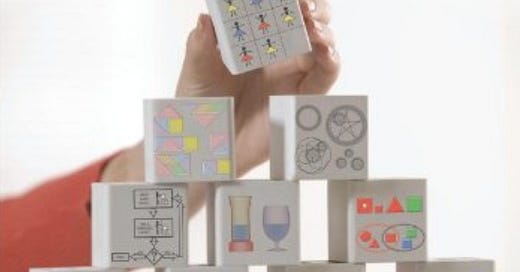






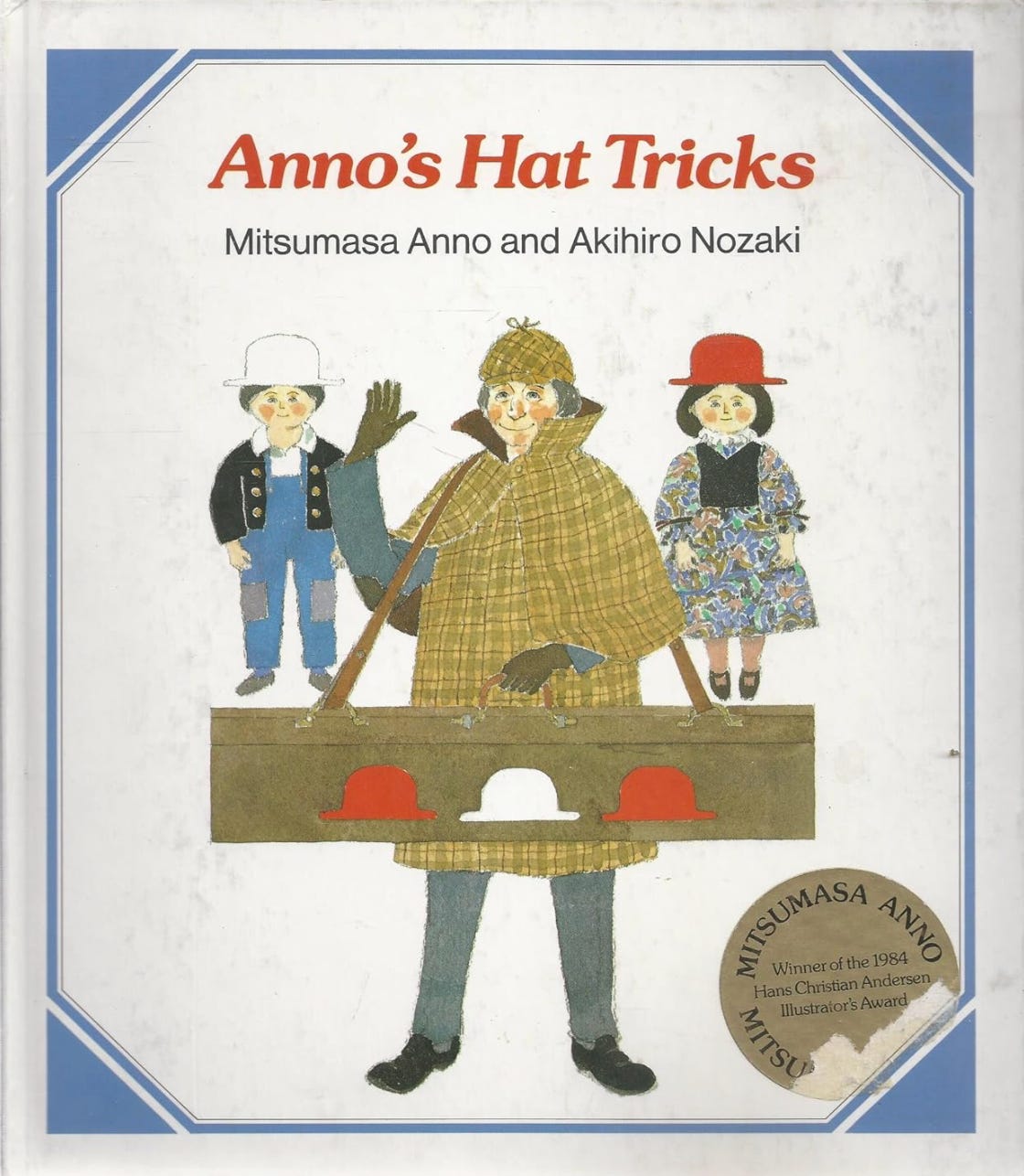
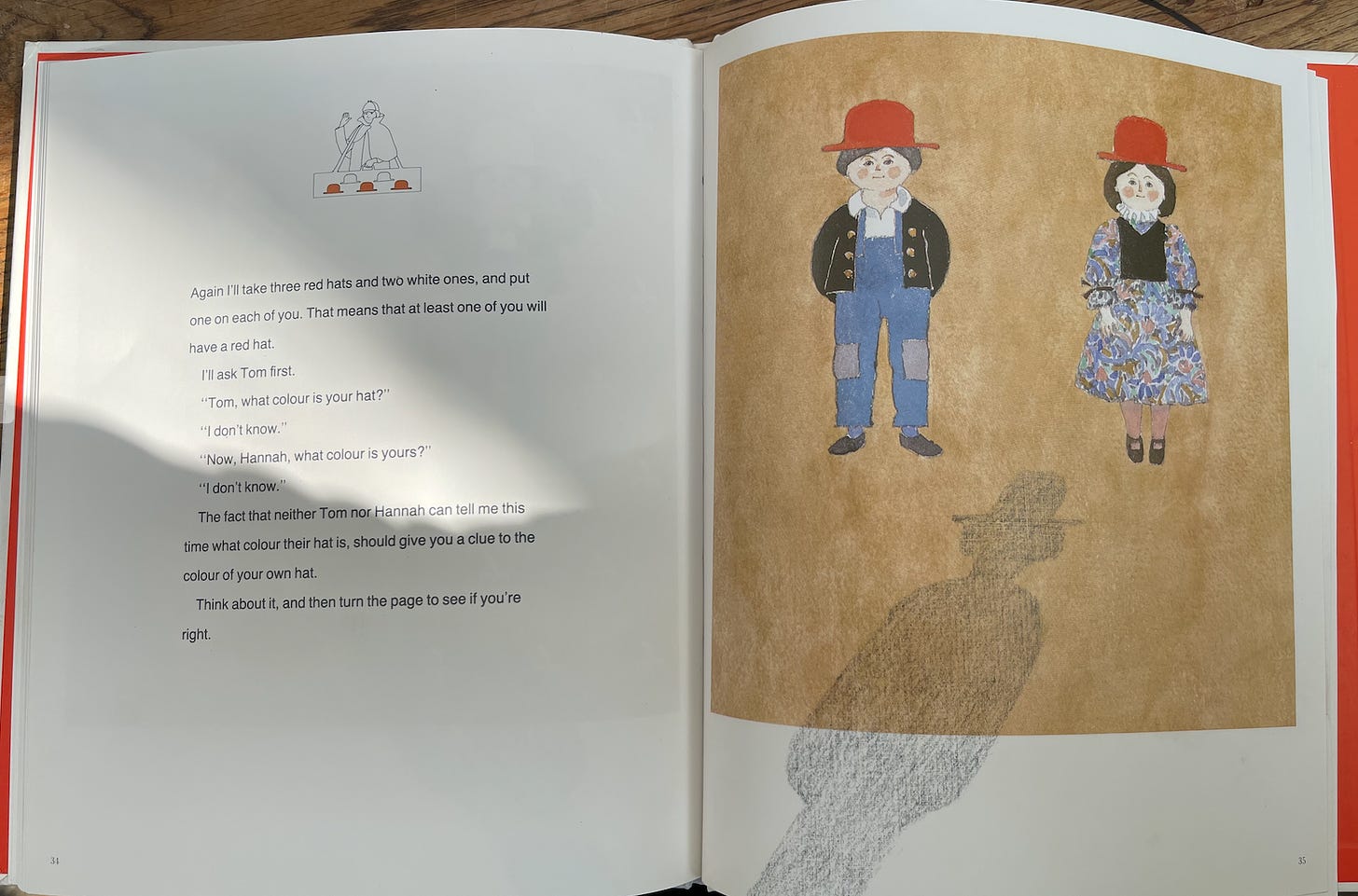


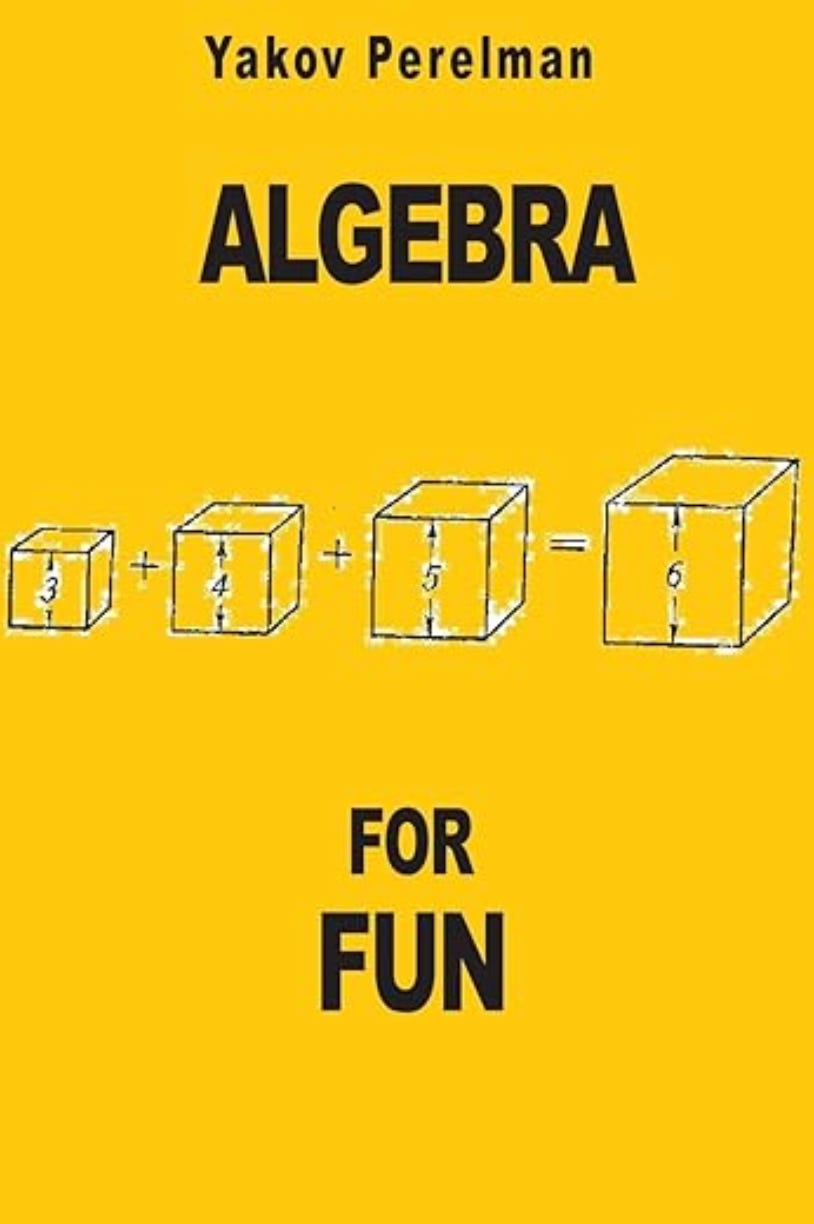
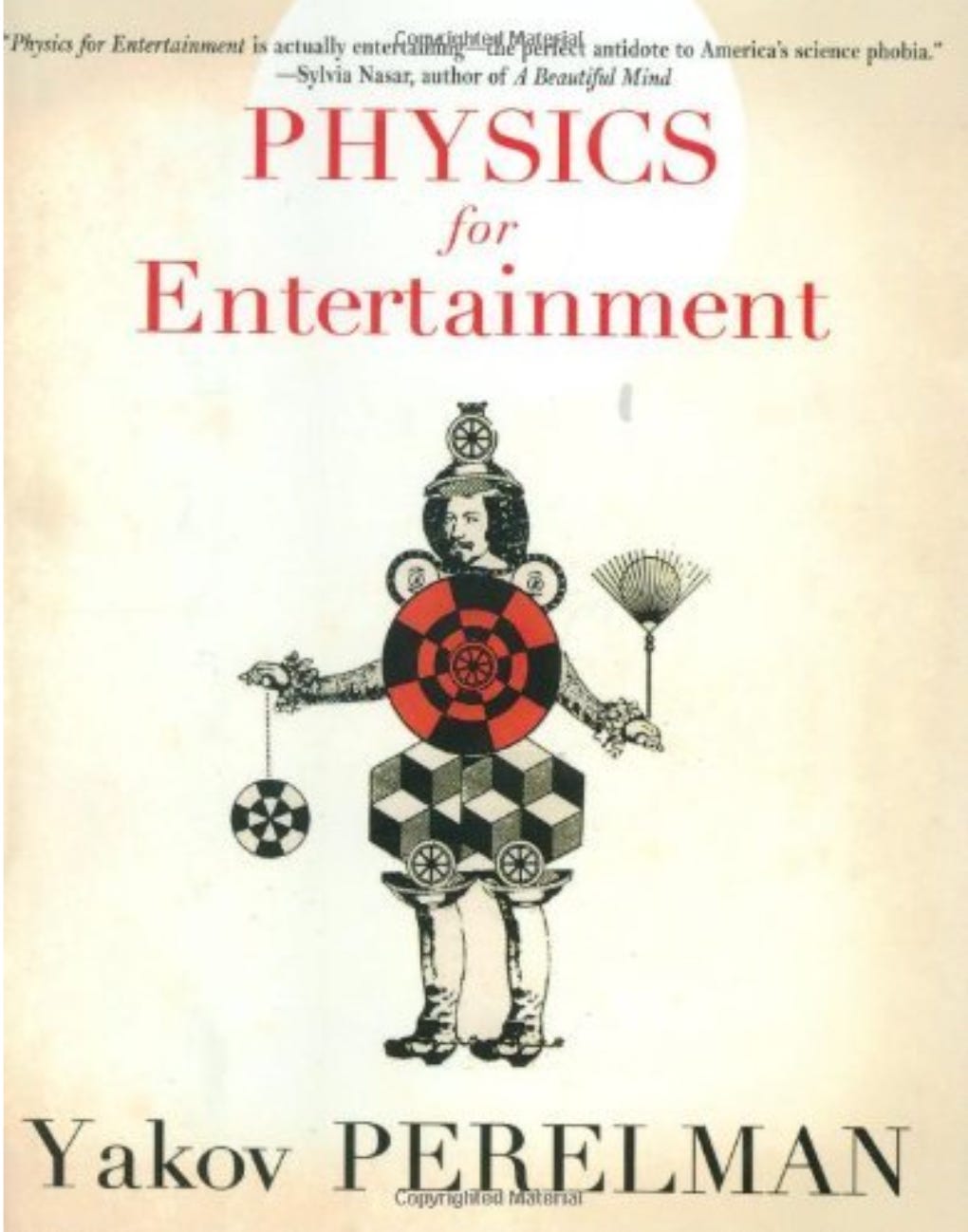
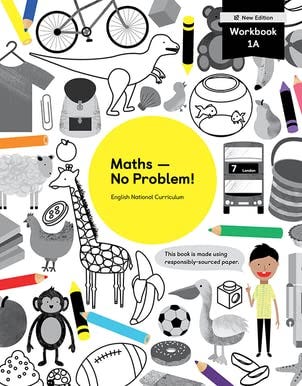
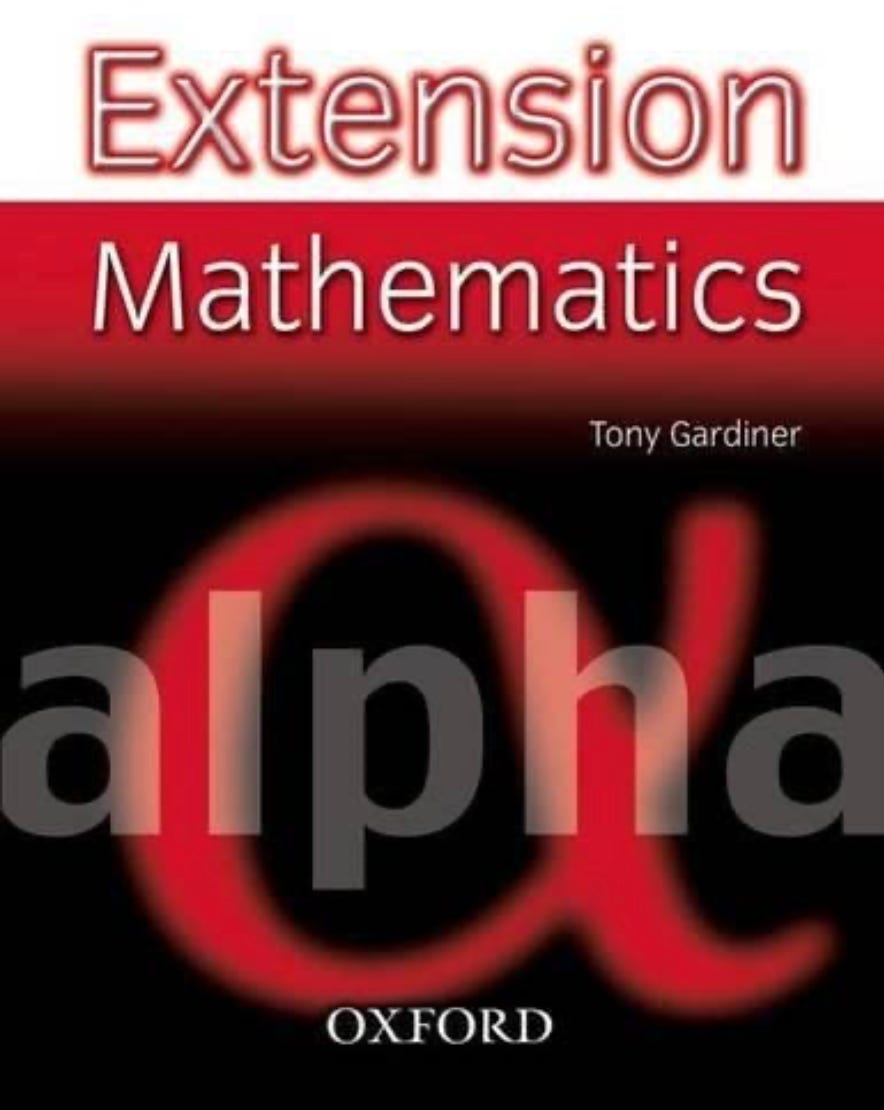



When it comes to education, the majority of parents think the school has 80% responsibility and the parents have 20%. This is sort of written into our social contract with the state.
But in my opinion (and people are free to disagree) the parents have 80% and the school has 20% responsibility when it comes to a child's education. The main benefit of school is social adjustment and social grounding.
My kids (13, 14) do their schoolwork and also have approx 8 hours of online 1v1 tutoring per week, typically one hour per evening and a Saturday morning session (both play for football teams, two night training and a weekend game, I find there is plenty of time to do stuff).
I don't follow the national curriculum for this tutoring. Standardised test results are Fool's Gold.
Usually I set up a 6 - 9 month block for a topic and we pick things like Singapore maths, python, AWS certificates, a language, architectural drawing.
I had a Microsoft SysAdmin teach my 14 year old python.
I had a teacher from Hwa Chong Institute teach my kids math.
Anything they express any kind of interest in, we just lean right into that. I think I've definitely had the most value when following / rewarding their curiosity. If the whole thing is a bit alien to you then do it yourself in the beginning, pick something you want to learn about and then hire an online tutor to teach you the skill. Try and learn some next level maths or an entry level coding language, or whatever you're interested in.
I will go and scout the internet for someone who is already in that space to do some 1v1 tutoring. Sweet spot is typically a young professional in their mid / late 20's who is likely underpaid at the coalface and is saving for first house, someone who still has a fresh memory of school. "Hey my kid is interested in this space? Would you mentor them 1 hour per week after dinner on a Tuesday? I'll pay you."
£25/hr on the international market, gets you excellent people (maybe £1,000/yr per topic). Maybe £5 - 10k a year for the whole budget, if you are considering public school and the fees are the main concern I would 100% recommend this path instead. It's a bit of work for you to manage their calendar and recruit folks, but these are either skills you already have or should probably practice.
In my mind, classrooms are 19th century social constructs and are really obsolete for their original purpose of education, they remain a good vehicle for the authorities to undertake social engineering, and for kids to socially adjust to groups and teams. But then again team sports are much better vehicles for learning teamwork than classrooms. Classrooms are useful for primary school, where it's mostly free daycare and social learning and classrooms are also valuable once you get to university and the people in the room have been filtered for interests and capability. But the part in the middle where teenagers are compelled to do things they have no real interest in, honestly it's just a huge waste of everyone's time. It's a system that rewards cognitive obedience and kills curiosity stone dead.
I think secondary schools, as a model, are probably a net negative in terms of socioeconomic value, they just generate a bland human soup of resource, as an employer for difficult things I find it deeply irritating that we put teenagers through this. I think what we are really missing is genuine diversity of models for developing people. The standardised everything education is meh. It is gamed to the point that the qualifications are actually worthless to hiring managers.
My experience of secondary school was that I learnt very little for 4 years, it was nowhere near challenging enough and spent most of my time playing sports and strategy video games and socialising and still walked away with top marks.
Tertiary education is better, but has too much filler. It acts more like a class filter than a value adding system. Listen to the job market, we need more people studying medicine, science and engineering and a lot fewer people studying humanities. Sorry, but we all know it's true.
I think we should take Oxbridge, put it online and export it as a service whilst in the opposite direction we should recruit young upward professionals from all around the world to mentor our early/middle teens 1v1.
I think this could be a centrepiece for creating a competitive strategic advantage for UK PLC and making the UK a global epicentre of human capital and soft power. But I doubt it would work as a public service. Probably doesn't scale beyond 20,000 kids before your drop off the cliff in terms of quality of tutors.
If you want your kids to offer extremely high value add in the 21st century, is paying a high fee for a stuffy Victorian education model really much of an investment? As someone who has hired dozens of phd folk for very difficult jobs, I would argue no. Public school might get your kids above the water line of the iceberg, but they are still stranded and adrift in the 21st century. Get them off the iceberg, it's going to melt they are going to drown.
Dear Dominic,
Thank you. This article touched on a topic really dear to me. I am a child of Russian Mathematics Academics but I grew up and went to a state funded grammar school in Manchester. My Farther is mathematician at the University of Manchester, he was one of the people you contacted when you tried to set up Russian style maths schools. I believe he even helped to draft a program for the school. You may recall the names: Dr Theodore Voronov, Prof.Alexandre Borovik, Prof Andrei Voronkov and Dr Hovhannes Khudaverdian.
Along side my regular department of education curriculum. I experienced the Russian tradition of Super Curricular Circles as My parents and many other Russian exPats set up a Saturday "Russian School". We had lessons in mathematics, Physics, biology, Russian and Art taught by the parents who were experts in those subjects. So I am in a unique position to compare both:
Unlike my farther, I am not particularly Mathematically gifted yet thanks to the Russian maths lessons I was able to keep up with the UK curriculum with ease. In Year 4 I was already working with Long division, multiplication tables, decimals. By the time I was in year 6 I was comfortable with algebra.
The UK system depends so much on Rote learning. Rote learning can be a useful tool but only if the idea that is drilled in is understood by the pupils. The classic example is the times table. In Russia it is still learn of by heart from a young age.
But what Russian maths taught me in comparison to UK is how to think threw problems. The best example is geometry. I started to learn geometry axioms at 12 in Russian school beginning with pythagorus . Our homework was to use the axioms to come up with basic proofs ourselves. It was tough at the time but when I figured them out for myself I learned them forever because they were my proofs.
I was staggered that at GCSE maths we were given the proofs the learn BY ROTE!! A great big sheet was handed out and we were told to learn them for the test. Bear in mind this was at a grammar school which is rated outstanding and supposedly specialises in science. How is that useful for the students.
Again, I want to emphasise that I was not mathematically gifted but I was able to achieve these things because Russian Maths pushed and challenged me in interesting ways. Solving proofs myself was engaging and fulfilling.
My father despaired when the Russian style maths schools that you were working on were blocked. They are not elitist quite the opposite: children who were taught maths from primary school age like me did not need much extra help to pass the 11plus maths. With the current UK curriculum children need rich parents with lots of tutoring to even attempt it.
P.s. In my personal biased opinion the way History is taught in England is even worse than maths. I personally have tutored GCSE and A level History for a few years and despaired at the state is is in. Jumping from topic to topic, century to century (ww1, Tudors, ect) is horrible for children. All historical context is missing. The most popular GCSE history topic is Germany 1918-1945 but how can you even teach that if a lot of the students never learned about ww1? 80% of my students did not know what Prussia was!
Madness. Worse still, I am not sure what to do about it.